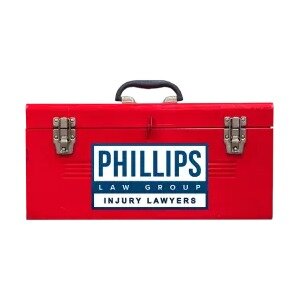Best International Trade Law Lawyers in Phoenix
Share your needs with us, get contacted by law firms.
Free. Takes 2 min.
List of the best lawyers in Phoenix, United States
About International Trade Law in Phoenix, United States
International Trade Law in Phoenix, United States, involves the regulation of trade transactions between businesses in Phoenix and entities abroad. This field of law covers a wide range of regulations, agreements, and legal principles that govern international exchange of goods and services. In Phoenix, as in other parts of the United States, International Trade Law is influenced by both federal statutes and international treaties to which the United States is a party. The complex landscape is also shaped by policies from bodies such as the World Trade Organization (WTO) and agreements like the North American Free Trade Agreement (NAFTA), now superseded by the United States-Mexico-Canada Agreement (USMCA).
Why You May Need a Lawyer
There are numerous situations where individuals or businesses may require legal assistance in International Trade Law. For instance, a lawyer can be crucial when you are negotiating contracts with foreign entities to ensure compliance with all applicable laws and regulations. Importers and exporters may need support in understanding tariffs and duties, especially when these change periodically due to political or economic conditions. Additionally, businesses may face disputes over trade agreements, licensing, and intellectual property rights that require expert legal intervention. Regulatory compliance, particularly regarding customs and trade embargoes, often necessitates legal guidance to avoid severe penalties.
Local Laws Overview
In Phoenix, important local regulations stem from broader state and federal laws. Key aspects include the management of import/export licenses, taxation, and adherence to environmental regulations affecting trade. The Arizona Department of Commerce may provide specific guidelines that impact international trade activities. Also, Phoenix businesses must comply with state-specific conditions on export controls, foreign investment, and trade sanctions that can affect their operations. Understanding these laws is pivotal to conducting successful and legal international trade.
Frequently Asked Questions
What are the basic documents required for importing goods to Phoenix?
The basic documents typically include a bill of lading, commercial invoice, import license, certificate of origin, and packing list. Additional documents might be necessary depending on the type of goods and destination of import.
What is the role of customs in international trade?
Customs is responsible for enforcing rules about the import and export of goods, collecting tariffs, and ensuring that trade complies with domestic and international laws.
How does USMCA affect businesses in Phoenix?
The USMCA streamlines trade between the U.S., Canada, and Mexico, affecting tariff structures, labor provisions, and even digital trade, thus benefiting businesses in Phoenix that trade with these countries.
Are there state-specific taxes for international trades in Arizona?
Yes, there are local tax laws that might affect international trade, including state sales tax on goods brought into Arizona, and businesses must also comply with federal taxes and tariffs.
What legal measures are in place to protect intellectual property in international trade?
The United States enforces intellectual property rights through federal laws and international agreements, providing mechanisms to address violations and disputes arising from international trade.
How can a business ensure compliance with trade sanctions?
Businesses should stay updated on sanctions enforced by the U.S. Office of Foreign Assets Control (OFAC) and conduct due diligence checks on international transactions.
Are there specific environmental regulations for trade in Arizona?
Yes, international traders must ensure compliance with both national and state environmental regulations, which can include restrictions on certain materials or manufacturing processes.
Can trade disputes be resolved locally, or must they go through international courts?
Trade disputes can be resolved through arbitration, negotiation, or litigation, depending on the contractual agreements; however, international courts can be involved in some cases.
What is the process for exporting technology goods from Phoenix?
Exporting technology involves obtaining the necessary export licenses, complying with the Export Administration Regulations (EAR), and ensuring products are not destined for restricted countries or entities.
Where can Phoenix businesses get updates on international trade policies?
Businesses can refer to resources such as the U.S. Customs and Border Protection website, the Arizona Department of Commerce, or professional legal counsel.
Additional Resources
For those seeking further information or assistance with International Trade Law in Phoenix, consider reaching out to the following:
- The U.S. Department of Commerce, International Trade Administration
- The Arizona Chamber of Commerce and Industry
- The World Trade Organization (WTO)
- The Export-Import Bank of the United States
Next Steps
If you are in need of legal assistance with International Trade Law in Phoenix, consider taking the following steps:
- Start by consulting with a lawyer who specializes in International Trade Law to assess your specific needs.
- Gather all relevant documents and information regarding your trade activities for your legal consultation.
- Explore seminars or workshops provided by local chambers of commerce to gain better understanding and network with professionals in the field.
- Ensure consistent communication with your legal advisor to remain compliant with evolving trade laws and agreements.
Lawzana helps you find the best lawyers and law firms in Phoenix through a curated and pre-screened list of qualified legal professionals. Our platform offers rankings and detailed profiles of attorneys and law firms, allowing you to compare based on practice areas, including International Trade Law, experience, and client feedback.
Each profile includes a description of the firm's areas of practice, client reviews, team members and partners, year of establishment, spoken languages, office locations, contact information, social media presence, and any published articles or resources. Most firms on our platform speak English and are experienced in both local and international legal matters.
Get a quote from top-rated law firms in Phoenix, United States — quickly, securely, and without unnecessary hassle.
Disclaimer:
The information provided on this page is for general informational purposes only and does not constitute legal advice. While we strive to ensure the accuracy and relevance of the content, legal information may change over time, and interpretations of the law can vary. You should always consult with a qualified legal professional for advice specific to your situation.
We disclaim all liability for actions taken or not taken based on the content of this page. If you believe any information is incorrect or outdated, please contact us, and we will review and update it where appropriate.

















